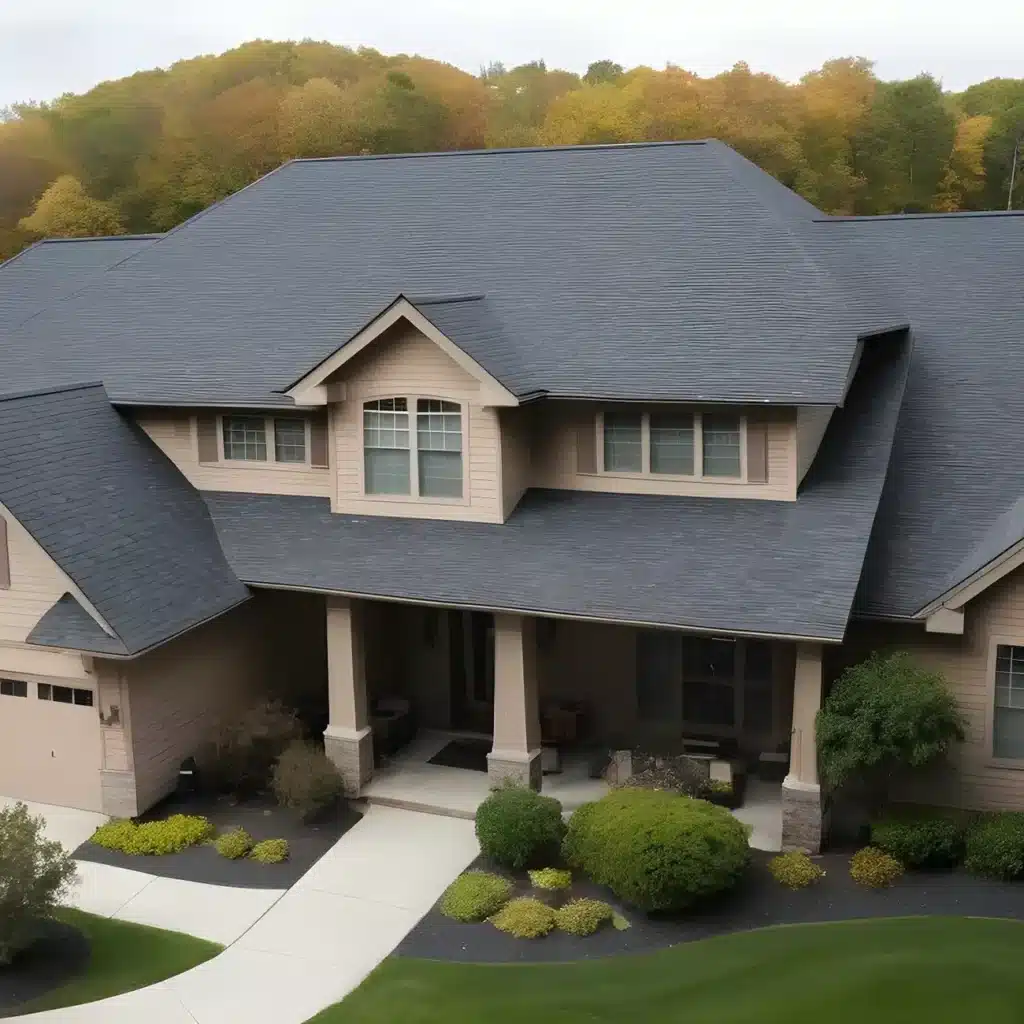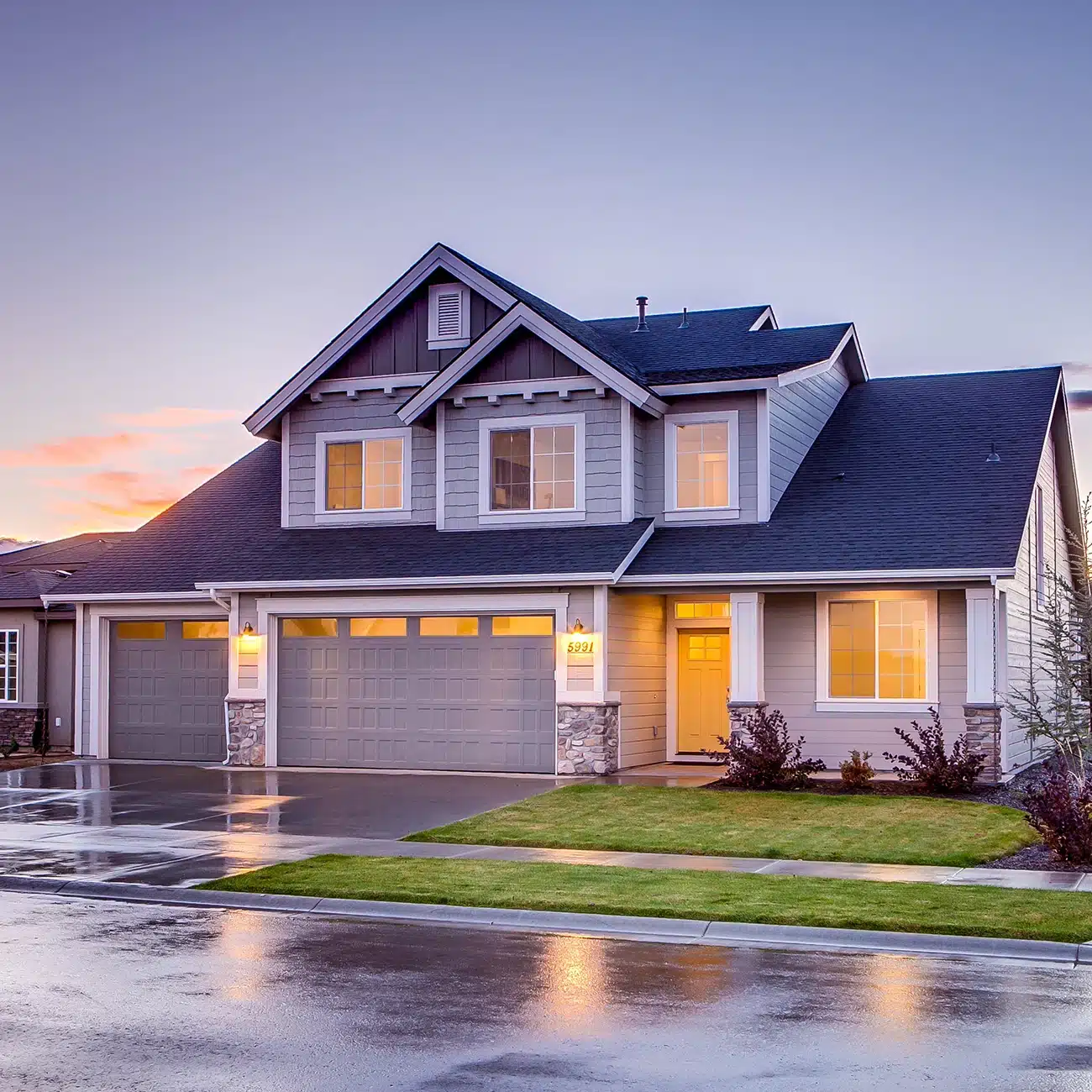Best Roof Coatings to Protect and Extend the Life of Your Roof

Protect Your Roof and Investment with the Best Roof Coatings
Your roof does more than keep your home dry. It shields your home from the elements, helps maintain energy efficiency, and can even improve curb appeal. However, it won’t last forever without proper care. One of the best ways to protect and extend the life of your roof is by using a roof coat.
If you’re looking for the best roof coatings, here are some top picks:
- Acrylic Roof Coatings: Excellent UV protection and reflectivity.
- Silicone Roof Coatings: Outstanding waterproofing and ponding water resistance.
- Elastomeric Roof Coatings: Flexible and durable under various weather conditions.
- Rubberized Epoxy Roof Coatings: Superior impact resistance and longevity.
Protecting your roof with a high-quality coating not only shields it from severe weather but also extends its lifespan, saving you from costly repairs or replacements.
Understanding Roof Coatings
Roof coatings are an essential component in extending the life of your roof. They serve as a monolithic membrane, which means they form a single, seamless layer over the entire roof surface. This seamless quality eliminates weak points where leaks and water damage could occur.
Monolithic Membrane
A monolithic membrane is like a waterproof blanket for your roof. By covering the entire surface in one continuous layer, it ensures that there are no gaps or seams where water can seep through. This is particularly beneficial for flat or low-slope roofs, where water pooling can be an issue. The seamless nature of a monolithic membrane makes it highly effective at preventing leaks and prolonging the roof’s lifespan.
Elastomeric Properties
Elastomeric properties refer to the coating’s ability to stretch and return to its original shape. This flexibility is crucial for roofs that experience temperature fluctuations. When the roof material expands in the heat and contracts in the cold, an elastomeric coating can move with it without cracking or peeling.
Case Study: In a study conducted by Texas Roof Shield, buildings with elastomeric roof coatings showed a significant reduction in roof repairs over a 10-year period compared to those without. This flexibility helps in maintaining the roof’s integrity over time.
Fluid Applied
Fluid-applied roof coatings are easy to install and highly effective. They can be applied using a brush, roller, or spray, making them versatile for different roof types and conditions. The fluid application ensures that the coating seeps into all cracks and crevices, providing a thorough seal.
- Ease of Application: Fluid-applied coatings can be installed without specialized equipment, making them a cost-effective option.
- Complete Coverage: The fluid nature allows the coating to cover even the most intricate roof designs.

Why It Matters
The combination of being a monolithic membrane, having elastomeric properties, and being fluid-applied makes these roof coatings a robust solution for protecting your roof. They offer superior protection against UV rays, water damage, and temperature fluctuations, ensuring that your roof remains in top condition for years to come.
Next, we’ll dive into the Types of Roof Coatings to help you choose the best option for your specific needs.
Types of Roof Coatings
Silicone Roof Coatings
Silicone coatings are a top choice for many commercial properties, especially in areas with high humidity or frequent rain. They offer exceptional resistance to ponding water, which is crucial for flat and low-slope roofs.
Benefits:
– Outstanding water resistance
– High UV protection
– Available in various colors with high reflectivity
Drawbacks:
– Higher cost
– Accumulates dirt, reducing reflectivity over time

Acrylic Roof Coatings
Acrylic coatings are water-based and highly reflective, making them an economical and versatile option for various roof types, including single-ply membranes and metal systems.
Benefits:
– Economical and easy to apply
– Excellent UV resistance
– Can reduce surface temperature by up to 20 degrees F
Drawbacks:
– Not suitable for areas with ponding water
– Requires warm weather for proper curing

Elastomeric Roof Coatings
Elastomeric coatings are known for their flexibility and durability. They can expand and contract with temperature changes without cracking, making them ideal for climates with significant temperature fluctuations.
Benefits:
– Excellent weathering properties
– High flexibility
– Durable and long-lasting
Drawbacks:
– Needs recoating every 5-10 years

Rubberized Epoxy Roof Coatings
Rubberized epoxy coatings offer a balance between tensile strength, elongation, and hardness. Highly durable, they protect against mildew, chemical exposure, and physical impact, making them suitable for high-traffic areas.
Benefits:
– High durability and impact resistance
– Protects against chemical exposure
– Suitable for high-traffic areas
Drawbacks:
– More expensive than acrylic coatings
– Requires careful application for best results

Next, we’ll discuss How to Choose the Right Roof Coating to ensure you make the best decision for your specific needs and conditions.
Benefits of Roof Coatings
Roof coatings offer several key benefits that can protect and extend the life of your roof. Let’s dive into the most important ones: UV protection, waterproofing, energy efficiency, and durability.
UV Protection
UV rays from the sun can cause significant damage to roofing materials over time, leading to cracks and degradation. Roof coatings, especially those made from acrylic and silicone, provide excellent protection against UV radiation. This helps maintain the integrity and appearance of your roof for a longer period.
“By shielding your roof from harmful UV rays, these coatings help maintain the integrity and appearance of your roof for a longer period.”
Waterproofing
Water damage is a common issue for many roofs, particularly in areas with heavy rainfall or snow. Silicone coatings excel in this regard because they are highly resistant to ponding water. Unlike other coatings, silicone doesn’t become hard or brittle, ensuring long-term waterproofing. This makes it an excellent choice for flat or low-slope roofs where water tends to accumulate.
Energy Efficiency
One standout benefit of roof coatings is their impact on energy efficiency. Many roof coatings, such as acrylic and silicone, have high reflectivity. This means they can reflect a significant portion of the sun’s rays, reducing the amount of heat absorbed by your roof and keeping your building cooler. Studies show that properly formulated acrylic coatings can reduce surface temperatures by as much as 20 degrees Fahrenheit, leading to lower cooling costs, especially during hot summer months.
“Our roof coat is applicable down to 40 degrees and cures to an Energy Star-rated heat reflective surface that reflects 90% of solar radiated heat!” source
Durability
Durability is another key benefit of using roof coatings. Polyurethane coatings, for example, offer high durability and impact resistance, making them suitable for high-traffic areas and roofs exposed to harsh conditions. These coatings can withstand physical impacts, chemical exposure, and environmental stressors, ensuring your roof remains in good condition for many years.
“Rubberized epoxy coatings offer a balance between tensile strength, elongation, and hardness. Highly durable, they protect against mildew, chemical exposure, and physical impact.” source
Roof coatings extend the lifespan of your roof, reduce maintenance needs, and protect against various forms of damage. They offer a cost-effective solution for maintaining your roof’s health and performance.
Next, we’ll discuss How to Choose the Right Roof Coating to ensure you make the best decision for your specific needs and conditions.
How to Choose the Right Roof Coating
Choosing the right roof coating is crucial for protecting and extending the life of your roof. Here are some key factors to consider:
Climate Considerations
The climate where you live plays a big role in selecting the appropriate roof coat.
- Hot Climates: Acrylic coatings are excellent due to their UV resistance and reflectivity. They can reduce roof surface temperatures by up to 20°F, which helps lower cooling costs.
- Wet Climates: Silicone coatings are ideal as they resist ponding water and remain durable over time. This makes them perfect for regions with heavy rainfall or snow.
- Extreme Weather: Rubberized epoxy coatings offer superior protection against severe weather conditions, including hail storms. They are highly durable and can withstand physical impacts and chemical exposure.
Roof Material
Different roof materials require different types of coatings for optimal performance.
- Metal Roofs: Acrylic coatings are a popular choice for sloped metal roofs. They adhere well and provide excellent UV protection.
- Flat or Low-Slope Roofs: Silicone coatings are suitable as they handle standing water better than other coatings.
- Modified Bitumen or Built-Up Roofs: Rubberized epoxy coatings offer improved durability and protection against various elements.
Application Method
The method of application can affect the performance and longevity of the roof coating.
- Brush and Roller: Ideal for small areas or touch-ups. Use a brush for edges and a roller for larger, flat surfaces.
- Airless Spray: Best for large roofs. This method ensures even coverage and is faster than manual application. High-pressure airless spray equipment is recommended for a uniform finish.
Always apply the coating in multiple thin layers rather than one thick layer. This helps with even drying and reduces the risk of cracking.
Maintenance Requirements
Regular maintenance extends the life of your roof coating.
- Inspection: Periodically check for signs of wear, such as thinning or peeling.
- Cleaning: Remove dirt and debris that can accumulate and affect reflectivity.
- Recoating: Typically needed every 10-20 years, depending on the type of coating and environmental conditions. For example, Armor Garage guarantees their coatings for 12 years, with a lifespan of 15-20 years with routine maintenance.
By considering these factors, you can ensure a successful roof coating application that protects and improves your roof for years to come.
Next, we’ll address FAQs about Roof Coatings to help you make an informed decision.
Application Tips for Roof Coatings
Applying a roof coat can significantly extend the life of your roof, but the application process is crucial for achieving the best results. Here are some essential tips to ensure a successful application:
Clean Surface
Before applying any roof coating, thoroughly clean the roof surface. Use a pressure washer to remove dirt, debris, and any existing loose coatings. Pay special attention to areas with mold, mildew, or oil stains, as these can affect adhesion.
Tip: A clean surface ensures better adhesion of the coating, maximizing its effectiveness.
Dry Roof
Ensure the roof is completely dry before application. Moisture can prevent the coating from adhering properly and can lead to issues like blistering or peeling.
Fact: Confirm all dew or moisture has completely dried from the roof before applying. This is especially important for silicone coatings.
One-Coat vs. Two-Coat
Some roof coatings require multiple coats for optimal performance, while others are designed for single-coat application. Refer to the product instructions for the recommended number of coats and drying times between applications.
- Single-Coat: Ideal for smooth surfaces in good condition.
- Two-Coat: Recommended for rough or damaged areas to ensure full coverage and protection.
Example: Gardner-Gibson Flat Roof Coat-N-Seal can be applied in one coat to surfaces in good condition but may require multiple coats for rough surfaces.
Professional Consultation
While smaller roofs in good condition can be a DIY project, larger roofs with leaks or ponding water issues should be coated by a qualified professional. Consulting with a professional roofing contractor can provide a detailed analysis of your specific needs and ensure the best results.
Quote: “Consult with a professional roofing contractor who will be able to provide a detailed analysis of your specific needs and situation.”
By following these tips, you can ensure a successful roof coating application that protects and improves your roof for years to come.
Next, we’ll address FAQs about Roof Coatings to help you make an informed decision.
FAQs about Roof Coatings
What is the lifespan of a roof coating?
The lifespan of a roof coat can vary based on the type and quality of the coating used. For instance, Armor Garage guarantees their coatings for 12 years, but with routine maintenance, they can last up to 20 years before needing a recoat. Generally, high-quality coatings like those from Armor Garage, which use butyl rubber and epoxy copolymers, are designed to offer long-lasting protection. Routine maintenance and proper application can extend the lifespan of your roof coating significantly.
Can roof coatings reduce energy costs?
Yes, roof coatings can significantly reduce energy costs. Many roof coatings, including those from Armor Garage, have high solar reflectance rates. This means they reflect a large percentage of solar heat, reducing the temperature rise inside your home due to solar heat gain. For example, Armor Garage coatings reflect up to 90% of solar radiated heat, which helps keep your home cooler and can lower your cooling costs. Moreover, the Energy Star-rated surface of these coatings further improves energy efficiency.
How do I know if my roof is a good candidate for coating?
Determining if your roof is a good candidate for coating involves a few considerations:
-
Roof Condition: Ensure your roof is in good structural condition. All leaks and cracks should be repaired with roofing cement and reinforcing fabric before applying a roof coat.
-
Roof Material: Some roof materials are more suitable for coating than others. For example, rubber roofs can benefit from specific coatings like acrylic latex elastomeric coatings. Always check the product specifications to ensure compatibility with your roof material.
-
Climate Considerations: Roof coatings are especially beneficial in climates with high solar exposure or frequent rainfall. For instance, silicone coatings are excellent for wet environments due to their resistance to ponding water.
-
Application Method: Ensure the coating can be applied under the current weather conditions. Some coatings, like those from Armor Garage, can be applied in temperatures as low as 40 degrees and cure within 24-48 hours, making them versatile for different climates.
By assessing these factors, you can better determine if a roof coating is right for your specific situation. For best results, consult with a professional roofing contractor to get a detailed analysis custom to your needs.
Conclusion
At Texas Roof Shield, we understand that your roof is a critical investment. Protecting it with the right roof coat can extend its life and save you money in the long run.
Our roof coatings are designed to withstand the harsh Texas climate. They offer superior protection against UV rays, heavy rain, and extreme temperatures. This ensures that your roof remains durable and leak-free for years to come.
Investment Longevity
Choosing the right roof coating can significantly extend the lifespan of your roof. For example, one satisfied customer shared how our coatings protected their historic old house during a severe hailstorm, preventing any damage and maintaining the integrity of their roof. This kind of protection allows you to avoid costly roof replacements and repairs.
Quality Assurance
We pride ourselves on delivering high-quality products and exceptional customer service. Our coatings are easy to apply, require minimal maintenance, and come with long-term warranties. This means you can have peace of mind knowing that your roof is well-protected.
Investing in a roof coating from Texas Roof Shield means choosing a solution that offers durability, energy efficiency, and peace of mind. Whether you have a commercial or residential property, our coatings provide a reliable and cost-effective way to protect your investment.
For more information on how our roof coatings can benefit your property, schedule a free roof inspection with us today. Let Texas Roof Shield help you achieve a sustainable and long-lasting roofing solution.